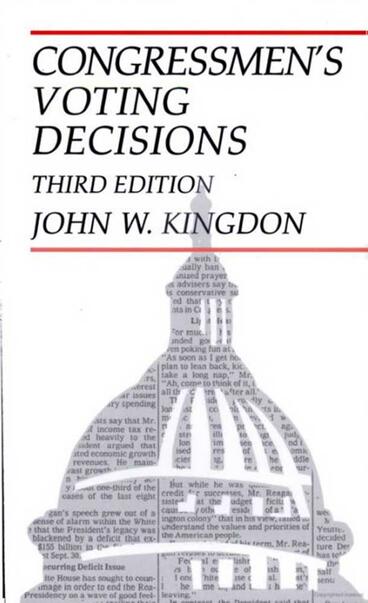Congressmen's Voting Decisions
Third Edition
A study of the process by which members of Congress arrive at roll call voting decisions
Description
This classic study of voting decisions in the U.S. House of Representatives, based on extensive interviewing and observation, combines theory and substance, generalization and detailed description. With a new introduction, this influential and innovative book remains the best statement of the ways in which legislators reach decisions. The work contributes in critical ways to scholars’ and students’ understanding of such larger features of legislative process as representation of constituencies, the place of specialization in the making of public policy, the extent and types of legislative rationality, the importance of principles in decisions, and the place of legislatures in larger political systems.

